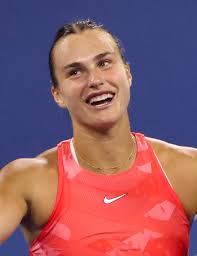
Introduction
The Tour de France Femmes is not only a sporting event but a significant milestone in the promotion of women’s cycling. Established to showcase female athletes and the sport itself, the event has gained remarkable traction since its inception. With 2023 marking the second year of this reimagined race, its impact on the visibility and treatment of women in professional cycling continues to unfold.
Event Highlights
The 2023 edition of the Tour de France Femmes kicked off on July 23 and ran until July 30, featuring a total of eight stages across a challenging and diverse route throughout France. The competition showcased the resilience and strength of female cyclists, with a total of 144 participants representing various countries.
This year, Dutch rider Demi Vollering claimed victory, making headlines not only for her performance but also for the support she garnered from her team, SD Worx. The race included iconic climbs like the infamous Col d’Izoard and ended with a thrilling finish on the Champs-Élysées, mirroring the men’s event and enhancing the scope and prestige of the event.
Significance for Women’s Sports
The revival of the Tour de France Femmes highlights the increasing investment in women’s sports. The event has received positive views from sports commentators and enthusiasts, with a growing audience tuning in via various platforms. Furthermore, sponsors are increasingly recognising the value of female athletes, which is crucial for the future sustainability of women’s cycling.
Riders expressed pride in competing at an event of such stature, emphasising that it serves as an inspiration for younger female cyclists to pursue the sport. Commentators have pointed out that this visibility can foster greater equality in sports funding and media representation.
Future Prospects
Looking ahead, the expectation is that the Tour de France Femmes will continue to grow both in terms of viewership and participation. Cycling organisations and governing bodies are being urged to harness this momentum to promote grassroots initiatives aimed at encouraging more women to take up cycling. Conferences and workshops on women’s athletic health and performance are also likely to become an integral part of the pre-event organisation in the years to come.
Conclusion
The Tour de France Femmes 2023 not only celebrated athletic prowess but also reinforced the necessity for equal representation in sports. As this event receives more attention and support, it holds the potential to pave the way for female athletes in all fields. Continued societal support will undeniably shape the future of women’s cycling, fostering an environment where female athletes can thrive on an equal footing with their male counterparts.
You may also like

Gittens: A Rising Star in the World of Sports

Unveiling the Journey: Mary Earps’ Book

The Rise of Aryna Sabalenka in Professional Tennis
SEARCH
LAST NEWS
- Remembering Wendy Richard: The Promise to Co-Star Natalie Cassidy
- How Did Anglian Water Achieve an ‘Essentials’ Rating for Mental Health Accessibility?
- Shai Hope Leads West Indies in T20 World Cup Clash Against South Africa
- What We Know About Weston McKennie: Future at Juventus and Past at Leeds
- What We Know About the Upcoming Live Nation Antitrust Trial